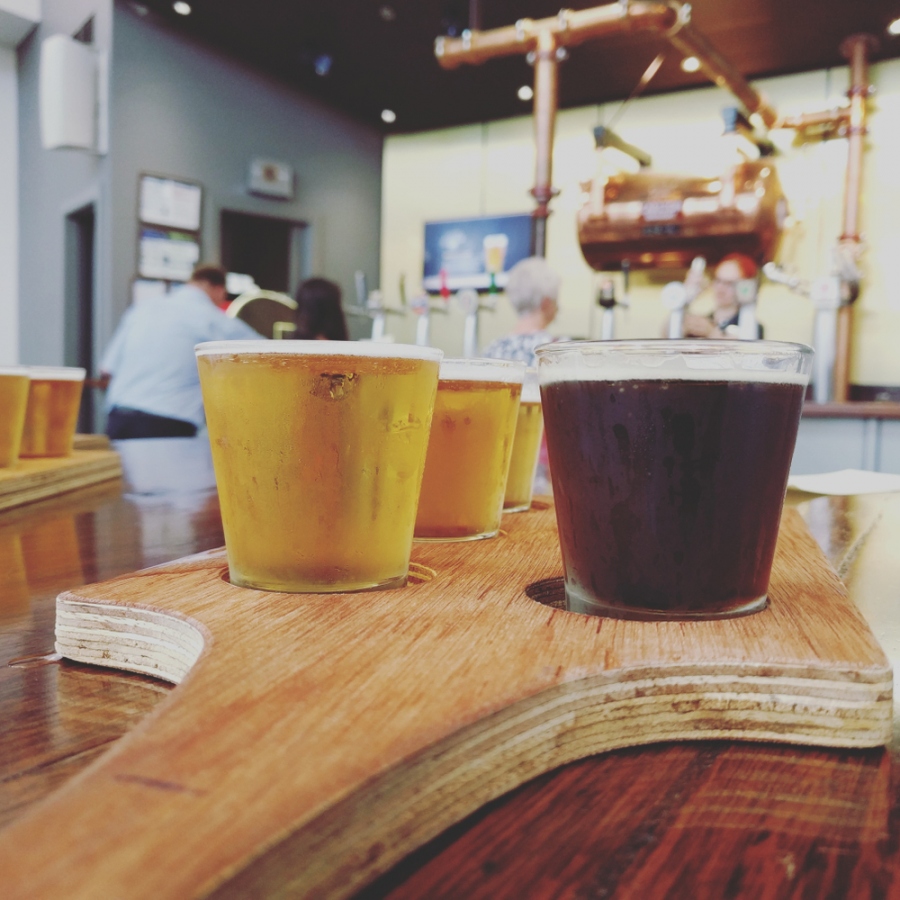According to The Brewer’s Association, breweries in the United States brew approximately 30 million barrels of beer annually, generating about $25 billion in sales. With an increasing number of craft breweries and microbreweries opening across the country, entrepreneurs are beginning to focus on the quality and experience of the beverages that they sell.
The craft beer movement is expanding at a rapid pace, and growing interest in the industry suggests that this is only the beginning. If you’re tired of mass-produced beer and interested in brewing your own beverages, starting a craft brewery can help fuel your passion.
Create a Business Plan

Photo Credit: Unsplash
Creating a comprehensive and realistic business plan is integral to the long-term success of your brewery. Outline your plan to distribute your beer in your target markets, and consider teaming up with local businesses and wholesalers to reach a wider target audience.
When pitching your business plan to investors to obtain funding for brewing equipment, location and construction, and other start-up costs, it’s important to provide not just a general plan, but a short-term plan with projected profit. Even if you have the capital saved to fund start-up costs, you’ll still benefit from a thorough financial plan. Consider consulting a professional to help create your business plan. A professional consultant can also provide valuable financial assistance, legal advice, and help to obtain funding. Although professional services aren’t free, they’re worth the investment.
Choose a Location
Photo Credit: Unsplash
According to the experts at Microbrewery, finding the perfect location for your craft brewery is essential. The location of your brewery will determine how well you attract your target audience and what kind of potential customers (with what kind of tastes and flavor preferences) will walk through your door and can affect your ability to expand in the future.
When choosing a location, take the rent payable, size of the premises, and amenities into account. Make sure to pay attention to zoning regulations and ensure you can open a brewery business on the premises. Additionally, take care and attention when prepping the taproom for your brewery, as most brewers need to relay flooring that’s resilient to the shock of massive equipment and barrels on the premises and temperature variations that occur during the brewing process.
Obtain Licenses and Permits
Photo Credit: Unsplash
Before obtaining your brewer’s license, you’ll need to come up with a unique name for your craft brewery. Pick a name with marketing potential that’s not already taken—if you’re not sure where to start, try coming up with a name that tells potential customers something about your beer, ale, or cider. When applying for a license, you’ll need to provide a statement outlining how you plan to fund your business, as well as documentation about the location of your brewery. The brewer’s licensing process can take anywhere from six months to a year.
Before opening your brewery, you’ll also need a Brewer’s Notice from the TTB and a state alcoholic beverage permit. You’ll need to apply to the TTB with information about how you plan to package and label your beer, ale, or cider, and how your brewing process will affect the environment. The process of obtaining a state alcoholic beverage permit varies from state to state, so research the laws applicable to your state before applying for your permit.
Start Marketing
Photo Credit: Unsplash
After obtaining all relevant licenses and permits and purchasing your brewing equipment, you’re ready to open the doors to your craft brewery. Marketing plays a significant role in influencing the success of your brewery and helping you reach potential customers. In the brewery industry, digital marketing best practices, like social media marketing and email marketing, can help you increase your online presence and credibility as a small business.
Search engine optimization (SEO), a powerful online digital marketing strategy, can help you reach a wider target audience and drive organic traffic. SEO involves optimizing your web design, link building, targeting keywords, and utilizing content marketing to improve your search engine rankings among local searches.
If you’re not sure where to start, an SEO expert with a proven track record can help you figure out the best way to improve your website design’s user experience, perform better in local search results, and keep up with changes in Google search engine algorithms. To find a digital marketing agency near you, search “SEO agency near me.“
Starting your own craft brewery from the ground up isn’t easy, but at the end of the day, you’ll be able to fuel your passion and share your brews with the world.
